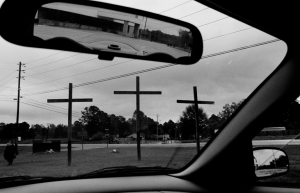
By Molly Worthen
Contributing Opinion Writer
DONALD TRUMP’S high poll numbers among evangelicals have preoccupied the media for months. But the most interesting thing about his Christian fans is not their willingness to overlook the sins of a casino playboy. Evangelicals happily voted for a divorced man of uncertain faith once before: Ronald Reagan. What is most striking is that Mr. Trump’s campaign has exposed a rift within evangelicalism — a split between those calling for culture war as usual and those who say Christians must adjust to life as a minority in American Babylon.
Some evangelical leaders are content to follow old models. They promise, as Jerry Falwell and his colleagues in the Moral Majority once did, that Christians are destined to lead the nation in “a moral and conservative revolution.” David Barton, the activist and pseudo-historian who helped vandalize Texas textbook guidelines, promises that “America can reclaim greatness” if its citizens recover their Christian heritage. He now runs a super PAC backing Ted Cruz, but his pledge echoes Mr. Trump’s vow to “make America great again” — a slogan that resonates with evangelical voters who feel the country slipping out of their grip.
Yet some evangelical elites are rebelling against this vision. They have not shifted leftward, but they disown both the legacy of the Moral Majority and the populist demagogy of Mr. Trump in favor of a softer, more sophisticated approach to activism. They note the shrinking ranks of American Christianity but say that evangelicals shouldn’t kick and scream. They should embrace their new role as a moral minority instead.
Image credit: A. Abbas/Magnum
